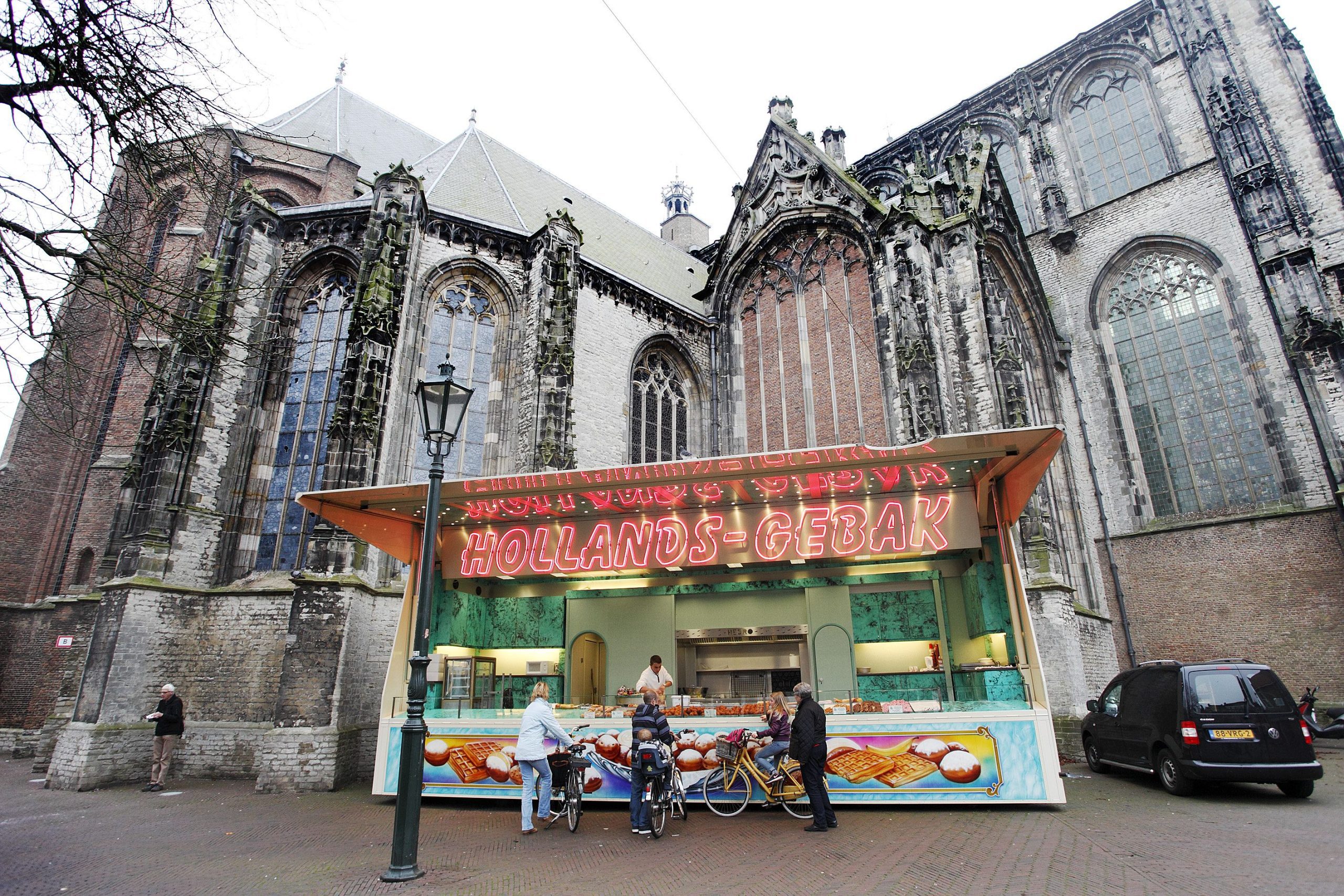From spiced biscuits to chewy cookies, steaming hot sugary treats to a warm cup of wine, even the Grinch won’t complain about these Dutch holiday treats.
Speculaas
Thin, crunchy and flat, speculaas are biscuits flavoured with spices of the season, such as cinnamon and nutmeg. Usually cut into distinct shapes, from Sinterklaas to animals, they’re available at most bakers and grocery stores. Try Bakkerij De Diamanten Ring, at Choorstraat Delft. Around since the 17th century, they’re among the oldest bakers in the city. They have a variety of speculaas on offer, such as a plain speculaas and one with nuts. “We also have a special speculaas cake with almonds inside,” said Lies Everts, one of the managers.
Oliebollen
Deep fried balls of dough anyone? It may not sound delicious, but oliebollen are a Dutch treat traditionally made on New Year’s Eve. In Delft, an oliebollen stand opens near the Old Church from November 1 to December 31 every year. You can get a regular oliebol sprinkled with sugar or try one with raisins, apple, rum and raisin or even banana. The special ones are made by sandwiching the stuffing between two regular oliebollen and deep frying them together. “We sell 400 to 500 oliebollen every day,” said John Huybregts, the owner.
Poffertjes
Poffertjes, or mini pancakes, are served steaming hot, with melting butter and powdered sugar. They’re the perfect treat on a cold evening. Be sure to try the poffertjes available at stands across the city on Lichtjesavond (the evening of lights). Sometimes, you can even have them with Nutella, rum and other toppings.
Gluhwein
Nothing strikes the right note in winter like a steaming glass of gluhwein. This winter drink is made using red wine and spices such as cinnamon, clove and citrus fruits. While you can make it at home, it’s also very affordable to buy. A bottle will cost you around €2 and is easily available at most grocery stores. Most pubs also have gluhwein on their menu during the season, including Stadscafe De Waag at Markt. “Just like hot chocolate, people always seem to want gluhwein in winter. It’s a great drink to warm up with,” said Hugo Overvoorde, the manager of De Waag.
Erwtensoep
Another typical winter dish is erwtensoep or pea soup. A thick broth soup made with peas, small chunks of ham are added on top. During festivals, there are often stalls selling homemade erwtensoep in bowls. StadsKoffyhuis serves a bowl of erwtensoep with bacon, bread and mustard. “Ours is a traditional recipe with an East-Indian twist, a hint of curry is used. We serve it from October to March,” said Ferry van Winden, co-owner of the restaurant.
This is an updated version of a previous Delft Survival Guide article.
Damini Purkayastha / Freelance text writer



Comments are closed.